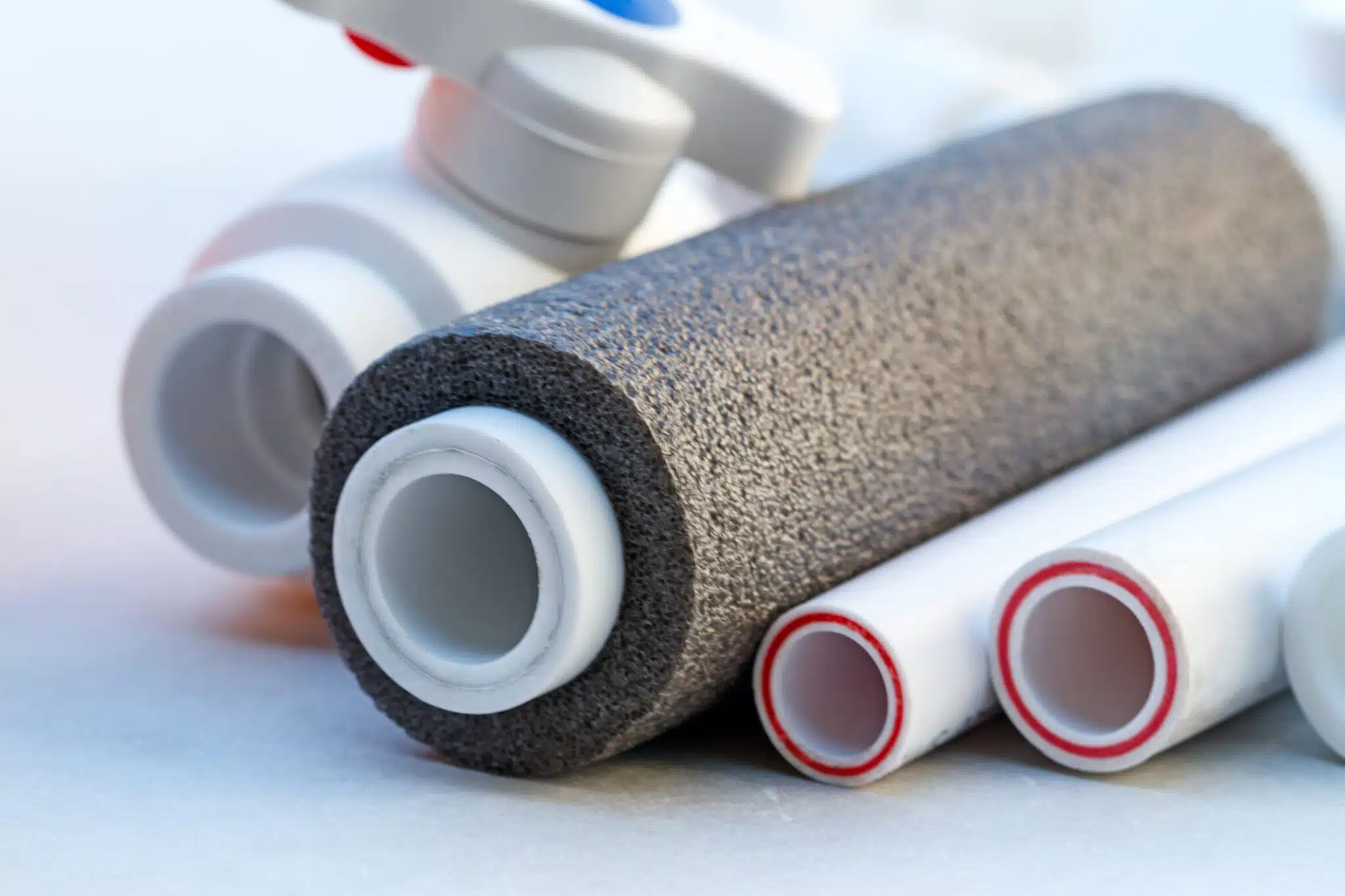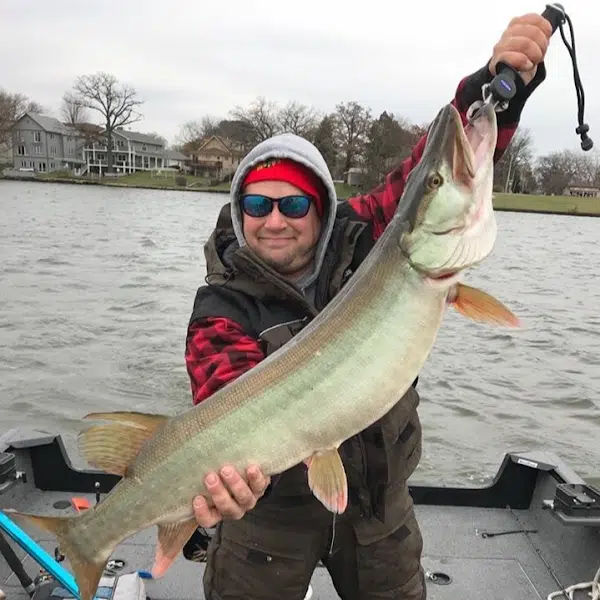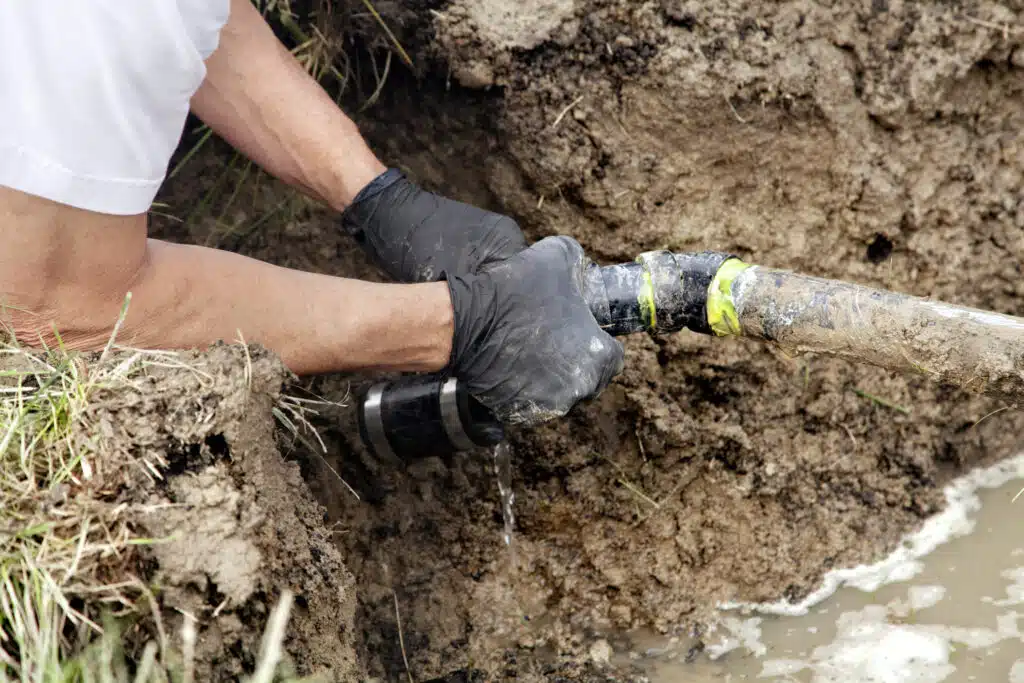Ever had to deal with frozen pipes or skyrocketing energy bills? Pipe insulation might be the simple solution you didn’t know your home needed. Whether you’re preparing for winter in Lancaster, PA, or just looking to make your plumbing more efficient, insulating your pipes can save you time, money, and headaches.
In this guide, we’ll walk you through everything you need to know—from the different types of insulation to the benefits it offers—so you can keep your home running smoothly all year round.
What is Pipe Insulation?
Pipe insulation is a material that wraps around pipes to regulate their temperature and improve performance. It works by retaining heat in hot water pipes, which reduces energy consumption and keeps water hotter for longer.
For cold water pipes, insulation prevents condensation buildup, which can lead to moisture damage, mold growth, or corrosion.
In colder areas like Lancaster, PA, insulation plays a critical role in preventing frozen pipes that can burst and cause expensive water damage. It’s a simple but effective solution to keep your plumbing system efficient, protect your home, and lower energy costs.

Types of Pipe Insulation
There are several types of pipe insulation, each offering different benefits depending on your needs and environment. Selecting the right type ensures your pipes are well-protected, efficient, and safe throughout the year. Let’s explore the most common options used in homes across Lancaster, PA, York, and Harrisburg to help you make the right choice.
Foam Pipe Insulation
Foam pipe insulation is lightweight, flexible, and easy to install, making it a popular choice for DIY projects. It is made from polyethylene or elastomeric foam and provides excellent thermal protection for both hot and cold water pipes.
Foam insulation also helps prevent condensation, which makes it ideal for use in humid environments. However, it is less resistant to high temperatures, meaning it’s not suitable for very hot pipes. Homeowners often prefer it for quick fixes or smaller sections of piping that need moderate insulation.
Fiberglass Pipe Insulation
Fiberglass pipe insulation is highly effective for extreme temperatures, making it the go-to option for hot water pipes and HVAC systems. It comes in pre-cut sections and includes a vapor barrier to prevent moisture buildup.
This type of insulation is common in industrial settings but also works well for residential homes with exposed pipes, especially in basements or garages.
It can withstand temperatures up to 1,000°F, though installation can be tricky without proper equipment. Homeowners often rely on professionals for fiberglass installation to avoid gaps and ensure proper coverage.
Rubber Pipe Insulation
Rubber insulation offers flexibility and durability, making it perfect for pipes that expand and contract with temperature changes. It resists moisture and can handle high temperatures, so it works well for both hot and cold pipes.
Rubber insulation is commonly used in outdoor or exposed areas where temperature fluctuations occur. Unlike foam, rubber insulation maintains its effectiveness over time and doesn’t deteriorate easily. It’s also resistant to mold and mildew, which is useful in damp environments like basements.
Reflective or Radiant Barrier Insulation
Reflective or radiant barrier insulation uses foil-based materials to reflect heat away from the pipe surface, keeping pipes cool even when temperatures rise.
This insulation works best in warm climates or spaces where pipes are exposed to direct sunlight, such as attics or outdoor installations. It’s not as thick as other types, but it provides excellent thermal control in specific situations.
Although less common in colder areas like Lancaster, it can still be useful for certain applications where heat resistance is needed. Homeowners often use it alongside other types of insulation for added protection.
Benefits of Pipe Insulation
Pipe insulation offers more than just temperature control; it can enhance energy efficiency, prevent costly damage, and even reduce noise throughout your home.
Whether you’re upgrading plumbing or preparing for winter, insulation provides a range of advantages for homeowners in Lancaster, York, and Harrisburg, PA.
Energy Efficiency
Insulating your pipes improves your home’s energy efficiency by reducing heat loss in hot water pipes. When pipes stay warm, your water heater doesn’t have to work as hard, which means you’ll see lower energy bills.
For cold water pipes, insulation prevents them from sweating and causing unnecessary cooling of nearby areas.
This is especially helpful in unheated spaces like basements or garages where temperature drops can occur. By conserving energy, insulation not only saves you money but also helps reduce your home’s environmental impact.
Preventing Pipe Damage
In colder climates, frozen pipes can be a serious threat to your home’s plumbing system. When water freezes inside a pipe, it expands and can cause the pipe to burst, leading to costly repairs and water damage.
Insulating exposed pipes reduces the risk of freezing, especially in areas like crawl spaces, attics, or outdoor plumbing.
Additionally, insulation helps protect pipes from corrosion and moisture damage, extending their lifespan. It’s a simple precaution that prevents emergencies and keeps your plumbing running smoothly all year.
Noise Reduction
If you’ve ever been annoyed by the sound of water rushing through pipes or vibrations from your plumbing system, insulation can help. Insulating pipes act as a buffer, dampening noise caused by water flow or pressure changes.
This is particularly beneficial in multi-story homes where pipes run through walls and ceilings. Noise reduction is also helpful if pipes are near living spaces, bedrooms, or home offices, making your home more comfortable.
With properly insulated pipes, you can enjoy a quieter living environment with fewer disruptions from plumbing sounds.
Moisture and Mold Prevention
Cold water pipes in humid spaces can develop condensation, leading to moisture buildup that promotes mold and mildew growth. Insulating these pipes prevents condensation by blocking moisture from forming on the surface of cold water lines.
This keeps basements, crawl spaces, and other unventilated areas dry, reducing the risk of mold-related health issues.
Insulation also protects your walls, ceilings, and floors from water damage caused by moisture buildup around plumbing. With mold prevention in place, your home remains healthier, and you avoid the costs associated with mold remediation.
Longer Plumbing Lifespan
Insulating pipes reduces wear and tear, extending the life of your plumbing system. The insulation acts as a cushion, absorbing stress caused by temperature changes that can weaken pipes over time. It also reduces exposure to moisture and rust, which can corrode metal pipes and cause leaks.
With insulation, your pipes remain in better condition, requiring fewer repairs and replacements over the years. This longer lifespan ensures that your plumbing remains reliable and reduces the likelihood of costly plumbing overhauls.
Temperature Control for Outdoor Pipes
If you have outdoor plumbing, like hose bibs or sprinkler systems, insulating them is crucial to prevent freezing and damage during the colder months. Insulation helps maintain consistent temperatures inside the pipes, even when outdoor temperatures drop.
This is especially important in areas like York and Harrisburg, where winters can be harsh. For seasonal plumbing, insulated pipes allow your outdoor systems to remain functional longer into the colder months, giving you greater flexibility. Proper insulation also helps avoid the need to replace or repair outdoor pipes every spring due to winter damage.
When to Insulate Pipes
The timing of pipe insulation plays a crucial role in how effective it will be. Whether you’re building a new home, renovating an older one, or preparing for seasonal changes in Lancaster, York, or Harrisburg, pipe insulation should be on your to-do list. Knowing when to install insulation ensures your pipes stay protected and efficient year-round.
New Construction
When building a new home, insulating the pipes during construction is the easiest and most cost-effective approach. At this stage, all plumbing systems are accessible, making it simple to cover every pipe with the appropriate insulation.
Insulating pipes during construction also adds value to your home by increasing energy efficiency and preventing future damage.
In regions with cold winters like Lancaster, PA, installing insulation from the start ensures your pipes are ready to handle freezing temperatures right away. This proactive step can save you from dealing with issues later on.
Home Renovations
If you’re updating your kitchen, bathroom, or basement, it’s the perfect opportunity to add insulation to your plumbing. During renovations, many pipes that are usually hidden become accessible, making it easier to install insulation.
Adding pipe insulation as part of your renovation can improve the performance of your updated plumbing system and help prevent future problems.
Whether it’s an older home in York or a modern remodel in Harrisburg, including pipe insulation ensures your new space will be more efficient and protected. Taking advantage of renovation projects is a smart way to improve your home’s plumbing without extra hassle.
Seasonal Considerations
In areas with cold winters like Lancaster, preparing your home for the season includes insulating any exposed pipes. Fall is an ideal time to inspect outdoor pipes, crawl spaces, and unheated areas to ensure everything is covered before the first frost.
Insulating pipes during winter helps prevent freezing and bursting, saving you from emergency plumbing calls.
In warmer months, pipe insulation can reduce condensation on cold water lines, which prevents moisture buildup and potential mold growth. Seasonal inspections and insulation updates keep your home protected and running efficiently year-round.
Importance of Professional Installation
Professionals bring experience and expertise to the table, ensuring that every pipe in your home is properly insulated. They know which materials work best for different pipes and environments, ensuring no areas are left vulnerable to temperature changes or moisture damage.
Professionals also have the right tools to handle tricky installations, like those in hard-to-reach places or within walls. Hiring experts minimizes the risk of gaps or mistakes, which could compromise the insulation’s effectiveness.
This is especially important for homes in colder areas, where even small oversights could lead to frozen pipes.
How to Choose a Professional
When looking for an insulation specialist, consider factors like experience, reviews, and pricing. Ask for recommendations from neighbors or check online reviews to find reliable contractors in Lancaster, York, or Harrisburg.
Make sure the professional is licensed and insured to protect yourself from liability. It’s also wise to ask for a detailed estimate that outlines the materials they will use and how long the job will take. Comparing a few quotes ensures you get the best value without sacrificing quality.
What to Expect from a Professional Insulation
A professional insulation job typically begins with a thorough inspection of your plumbing system. They will identify which pipes need insulation and recommend the best materials based on your needs and budget.
The process involves carefully wrapping or covering the pipes with insulation material, ensuring there are no gaps or exposed areas.
Once the installation is complete, the contractor will test the system to ensure everything is functioning properly. Afterward, you can expect reduced energy bills, quieter plumbing, and peace of mind knowing your pipes are well-protected from damage.
Common Mistakes to Avoid
Even with good intentions, improper pipe insulation can lead to problems that reduce its effectiveness. Whether you’re taking the DIY route or working with a professional in Lancaster, York, or Harrisburg, it’s essential to avoid common mistakes to get the most out of your insulation. Knowing what to watch out for can save you time, money, and frustration down the line.
Insulating the Wrong Pipes
A common error is insulating pipes that don’t need it while neglecting those that do. Insulating pipes that are already well-protected or don’t carry water won’t improve efficiency or performance.
The focus should be on hot water pipes to prevent heat loss and cold water pipes to stop condensation and freezing.
Pipes in unheated areas, such as basements, attics, and crawl spaces, are the most critical to insulate. Make sure to target these high-risk pipes rather than wasting time on unnecessary areas.
Using the Wrong Type of Insulation
Choosing the wrong insulation material can compromise the entire project. For example, foam insulation works well for general use but isn’t ideal for extremely hot pipes. Fiberglass insulation can handle higher temperatures but may not be the best choice for areas prone to moisture.
Rubber insulation offers flexibility but might not be necessary for pipes that don’t expand or contract. Understanding which type of insulation fits your pipes and environment ensures you get the best results without wasting resources.
Inadequate Coverage
Even small gaps in insulation can make it ineffective, leading to heat loss, condensation, or freezing. This often happens when insulation isn’t applied tightly enough or when joints and corners are overlooked.
Gaps leave room for cold air to penetrate, which defeats the purpose of insulation. Make sure that the insulation is wrapped snugly around the pipe with no spaces or openings.
If you’re using pre-slit insulation tubes, seal the seams properly to prevent exposure. Thorough coverage is key to protecting your plumbing system fully.
Protect Your Pipes with Expert Insulation – Call Benjamin Franklin Plumbing of Lancaster!
Don’t leave your pipes exposed to cold winters or rising energy costs. The pros at Benjamin Franklin Plumbing of Lancaster are here to help homeowners in Lancaster, York, and Harrisburg, PA with reliable, professional pipe insulation services.
Our expert team ensures your pipes stay efficient, protected, and problem-free year-round. Call today to schedule your pipe insulation service and keep your home running smoothly no matter the season!

FAQs
What is the best material for pipe insulation?
The ideal material depends on your needs. Foam insulation is affordable, easy to install, and great for moderate temperature control, while fiberglass is better for high-temperature pipes. Rubber insulation is durable and handles temperature changes well, while radiant barrier insulation reflects heat effectively in warmer climates.
How long does pipe insulation last?
Pipe insulation can last 10 to 20 years or even longer with proper care. Durable materials like rubber and fiberglass maintain their performance over time, even in harsh conditions. Regular inspections ensure there are no gaps or damage, especially in areas with extreme weather changes.
Can insulation help with water temperature?
Yes, insulation keeps hot water pipes from losing heat, meaning you’ll wait less time for hot water. It also prevents condensation on cold pipes, reducing moisture buildup. For cold water lines, insulation ensures tap water stays cold even when surrounding air temperatures rise.
Is pipe insulation necessary for all homes?
Homes in cold climates like Lancaster, PA, benefit the most since insulation prevents freezing and burst pipes. Even homes in milder climates can enjoy energy savings by insulating hot water pipes. If your home has exposed pipes in unheated spaces like garages or attics, insulation is especially useful.
What areas of the house need pipe insulation the most?
Unheated spaces such as basements, attics, and garages are priority areas for insulation. Pipes running along exterior walls, near windows, or in crawl spaces are also vulnerable to temperature changes. A seasonal check ensures that all exposed pipes are protected before winter or summer weather hits.





















